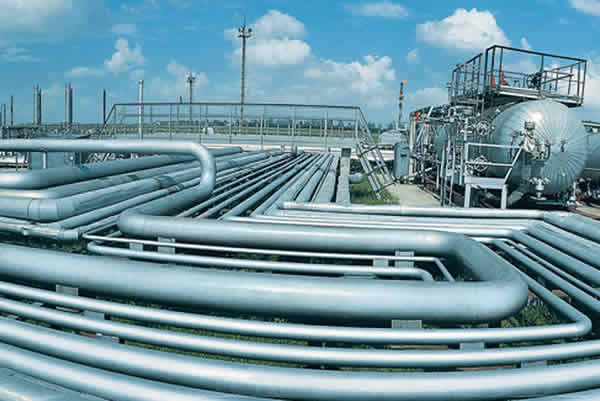Stakeholders in Africa’s energy sector have declared that natural gas remains the continent’s most viable option for bridging its energy access deficit and accelerating industrial growth.
Speaking at Sahara Group’s Asharami Square 2.0 held in Lagos on Friday, participants from government, industry, and the media said gas should be treated not just as a transition fuel, but as a transformational resource for the continent’s development.
The Minister of State for Petroleum Resources (Gas), Ekperikpe Ekpo, in a speech delivered by his Senior Technical Adviser, Mr Abel Nsa, said Africa needs to urgently address the narrative of Africa’s energy paradox as the continent accounts for over 7 per cent of global natural gas reserves, with Nigeria, Algeria, Egypt, and Mozambique holding the majority of these volumes.
“And yet, the continent consumes less than 5 per cent of global gas output. This mismatch between potential and utilisation must be addressed with urgency and purpose,” he said.
Ekpo described gas as a transformational fuel that can stimulate inclusive economic growth by “powering industries, energising homes, reducing dependence on more polluting fuels, and driving the engine of inclusive economic growth.”
He urged bold investment in infrastructure, including pipelines and financing frameworks that de-risk gas projects and incentivise private participation.
Ekpo also commended Sahara Group for shaping public discourse and creating a platform that bridges the gap “between intention and action, and between information and transformation.”
Mr Frank Mmamelu, who represented keynote speaker Dr Justice Derefaka of the Nigerian National Petroleum Company Limited, said natural gas had the potential to “lift millions out of poverty by supporting agriculture, improving access to clean domestic energy, reducing deaths caused by pollution, and addressing gender inequality.”
He warned that Africa must stop exporting unrefined natural resources and instead focus on developing local capacity across the gas value chain.
An energy communications expert, Dr Adeola Yusuf of Platforms Africa, challenged media professionals to play an active role in shaping the energy transition conversation.
“The media needs to have a seat at the table. Government and private institutions must facilitate seamless access to data and critical information that will support holistic understanding and fact-based reporting of the issues to promote accountability, transparency, and stamp out greenwashing.”
The Director of Governance and Sustainability at Sahara Group, Ejiro Gray, stressed that the continent’s developmental needs must be placed at the centre of any sustainability conversation.
“While global attention often centres on carbon emissions and net-zero targets, African nations face distinct challenges around access, equity, and economic inclusion. Gas offers a critical opportunity to bridge these gaps,” she said.
Gray also pointed to Sahara Group’s ongoing gas infrastructure projects in Nigeria, Côte d’Ivoire, Kenya, Ghana, Senegal and Tanzania, describing them as vital to improving regional trade and energy access.
The Asharami Square forum also featured the presentation of the Asharami Awards to The PUNCH for Outstanding Sustainability Reporting. Vanguard Online, Nigeria Info 99.3FM, and Arise News also received honours.
Head of Corporate Communications at Sahara Group, Bethel Obioma, said the awards were intended to “inspire more accurate and insightful reporting on Africa’s sustainability journey.”
He added, “We believe this will help reduce misrepresentation and enable the media to play a dominant and inspiring role in galvanising action and influencing the direction of public policy.”














